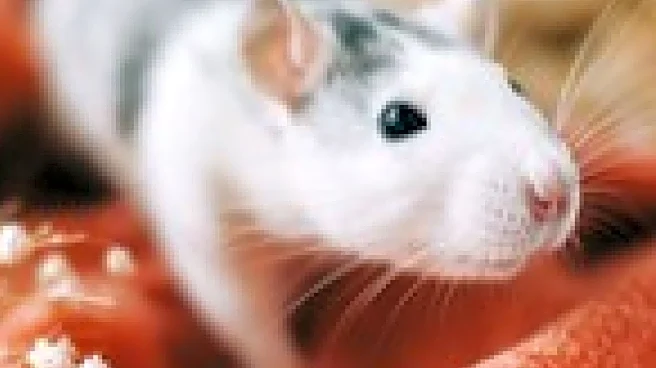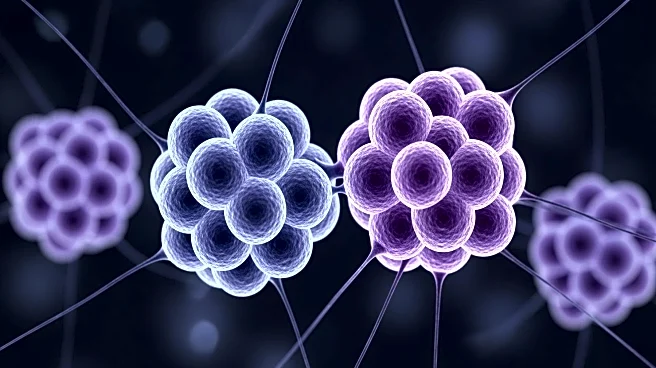What's Happening?
Research has uncovered a variant of the immune protein cGAS in naked mole rats that enhances DNA repair, potentially contributing to their extended lifespans. Naked mole rats, known for their longevity of up to 37 years, possess a unique version of cGAS that boosts DNA repair, unlike the human version which suppresses it. This discovery suggests that the accumulation of mutations due to inadequate DNA repair is a key factor in aging. The study, led by Zhiyong Mao at Tongji University, indicates that altering the amino acids in cGAS can change its function, offering potential pathways for extending human lifespans.
Why It's Important?
The findings are significant as they provide a deeper understanding of the biological mechanisms that contribute to longevity. By studying the naked mole rat's DNA repair capabilities, researchers can explore new anti-aging strategies that could be applied to humans. Enhancing DNA repair processes may reduce the risk of age-related diseases and improve overall health and lifespan. This research opens avenues for developing therapies that mimic the mole rat's DNA repair mechanisms, potentially leading to breakthroughs in human longevity.
What's Next?
Further research is needed to explore the potential of gene editing and mRNA delivery to improve DNA repair in humans. Scientists may also investigate small-molecule drugs that can interact with human cGAS to enhance its DNA repair capabilities. These approaches could pave the way for new treatments aimed at promoting longevity and reducing age-related health issues.
Beyond the Headlines
The study prompts ethical considerations regarding genetic modifications for extending human lifespans. It also raises questions about the broader implications of manipulating DNA repair mechanisms and the potential impact on human health and aging.








